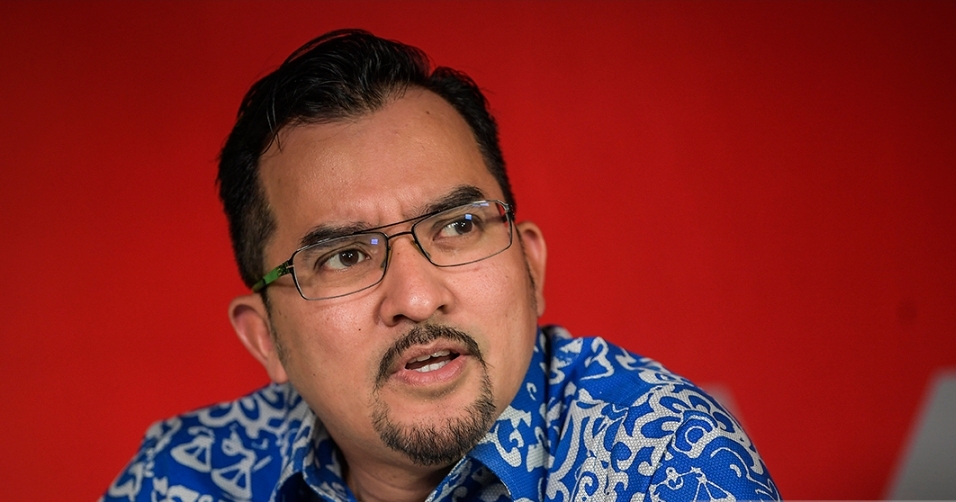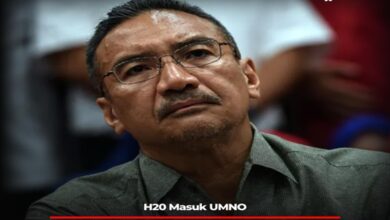Syed Saddiq juga tidak kebal dari undang-undang – Asyraf

Syed Saddiq juga tidak kebal dari undang-undang – Asyraf
Ahli Parlimen Muar, Syed Saddiq Syed Abdul Rahman yang sedang berdepan dengan pertuduhan di mahkamah atas pelbagai kes penyelewengan, pecah amanah dan rasuah berjumlah RM1.12 juta juga tidak kebal daripada dikenakan tindakan undang-undang.
Ketua Pergerakan Pemuda UMNO, Datuk Dr. Asyraf Wajdi Dusuki berkata, beliau menantikan jawapan Syed Saddiq bagi menjelaskan bagaimana bekas Ketua Angkatan Bersatu Anak Muda (Armada) itu boleh terfikir untuk memasukkan wang parti yang didakwa telah diselewengkan ke dalam akaun pelaburan Amanah Saham Bumiputera (ASB) miliknya sendiri.
“Ahli-ahli politik mudalah tanpa mengira parti yang diharapkan untuk membina kembali negara dengan amalan politik yang bersih dan berintegriti bebas daripada rasuah, salah guna kuasa dan apa jua bentuk penyelewengan.
“Apa-apa pun tanpa prejudis, kita tunggulah keputusan mahkamah nanti,” katanya dalam hantaran Facebook miliknya, hari ini.
Beliau mengulas tentang hantaran Facebook Syed Saddiq kelmarin selepas Mahkamah Persekutuan mengekalkan sabitan, hukuman penjara 12 tahun dan denda RM210 juta ke atas bekas Perdana Menteri, Datuk Seri Najib Razak dalam kes SRC International Sdn. Bhd.
Presiden Parti Ikatan Demokratik Malaysia (Muda) itu berkata, keputusan mahkamah itu merupakan peringatan kepada semua pihak bahawa tiada sesiapa pun yang kebal daripada tindakan undang-undang.
Syed Saddiq, 29, ketika ini berdepan perbicaraan atas pertuduhan pindaan bersubahat dengan bekas Penolong Bendahari Armada, Rafiq Rahim melakukan pecah amanah dana berjumlah RM1 juta milik Parti Pribumi Bersatu Malaysia (Bersatu).
Mengikut pertuduhan pertama, Syed Saddiq yang juga bekas Menteri Belia dan Sukan era Pakatan Harapan (PH) didakwa bersubahat dengan Rafiq melakukan pecah amanah dengan menyalahgunakan dana itu.
Bagi pertuduhan kedua, beliau didakwa menyalahgunakan RM120,000 daripada akaun Maybank Islamic Berhad milik Armada Bumi Bersatu Enterprise untuk diri sendiri.
Syed Saddiq juga berdepan dua pertuduhan melibatkan diri dalam aktiviti pengubahan wang haram iaitu memindahkan wang masing-masing RM50,000 dalam akaun Maybank Islamic Berhad miliknya ke akaun ASB miliknya, yang merupakan hasil daripada aktiviti haram.
Beliau didakwa mengikut Seksyen 406 Kanun Keseksaan dibaca bersama Seksyen 109 yang memperuntukkan penjara maksimum 10 tahun dengan sebatan serta boleh dikenakan denda, jika sabit kesalahan.
Syed Saddiq juga didakwa mengikut Seksyen 403 Kanun Keseksaan yang membawa hukuman penjara tidak kurang enam bulan dan tidak lebih lima tahun dengan sebatan dan boleh dikenakan denda, jika sabit kesalahan.
Pertuduhan turut dikemukakan mengikut Seksyen 4(1)(b) Akta Pencegahan Pengubahan Wang Haram, Pencegahan Pembiayaan Keganasan dan Hasil Daripada Aktiviti Haram 2001 [Akta 613].
Beliau boleh dihukum di bawah Seksyen 4(1) akta sama, dan sabit kesalahan memperuntukkan hukuman penjara maksimum 15 tahun dan denda tidak kurang daripada lima kali ganda jumlah atau hasil daripada aktiviti haram. MG
Syed Saddiq juga tidak kebal dari undang-undang – Asyraf
Baca Artikel Menarik:
- UMNO tahu yang mana lawan dan kawan sebenar
- ‘Setakat ini sahaja’, Najib titip pesanan akhir buat keluarga
- Baru lima hari bebas dari penjara, bekas penjenayah rogol ibu dan anak
- Pemilik kedai kopi terkenal hilang sejak Ahad lalu
- Najib berbeza dengan Anwar, tidak heret rakyat dalam kes mahkamah
- NASA rakam bunyi seram ‘black hole’ [VIDEO]
- Mahkamah: Pengeluaran terbesar daripada akaun Armada, RM1juta
- Tanpa Bossku, BN berdepan masalah besar pada PRU-15
- Sah, deraf penghakiman Najib bocor
- ‘Bossku tidak berakhir ‘, Yana Najib janji bawanya pulang ke pangkuan keluarga
- Kes Najib akan terus diulas, dihakimi rakyat
- Ustaz Kazim Elias dinasihat bertopi, tutup wajah elak kena cahaya matahari
- Bukan Zainab yang tular tapi Zainab lain – Rafizi
Layari Laman Facebook MYKMU.NET
Suami Tengku Maimun buat hantaran negatif, bimbang pengaruhi keputusan pertuduhan – Najib
Amelia Henderson Terlalu Seksi, Peminat Doa Ada Lelaki Boleh Bimbingnya
Penyanyi Lelaki Selamba Cium BCL Atas Pentas Dikecam Netizen





You must be logged in to post a comment.